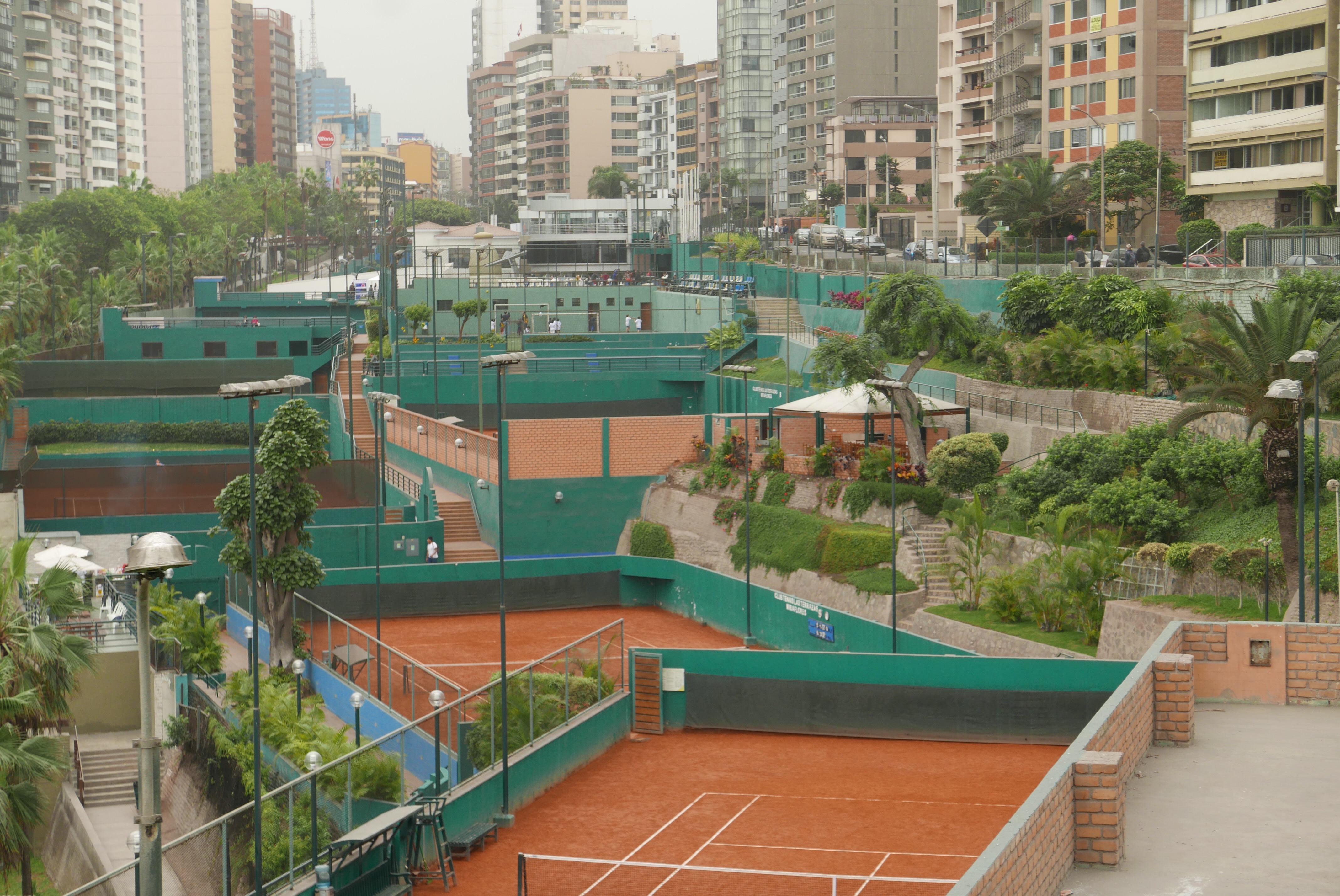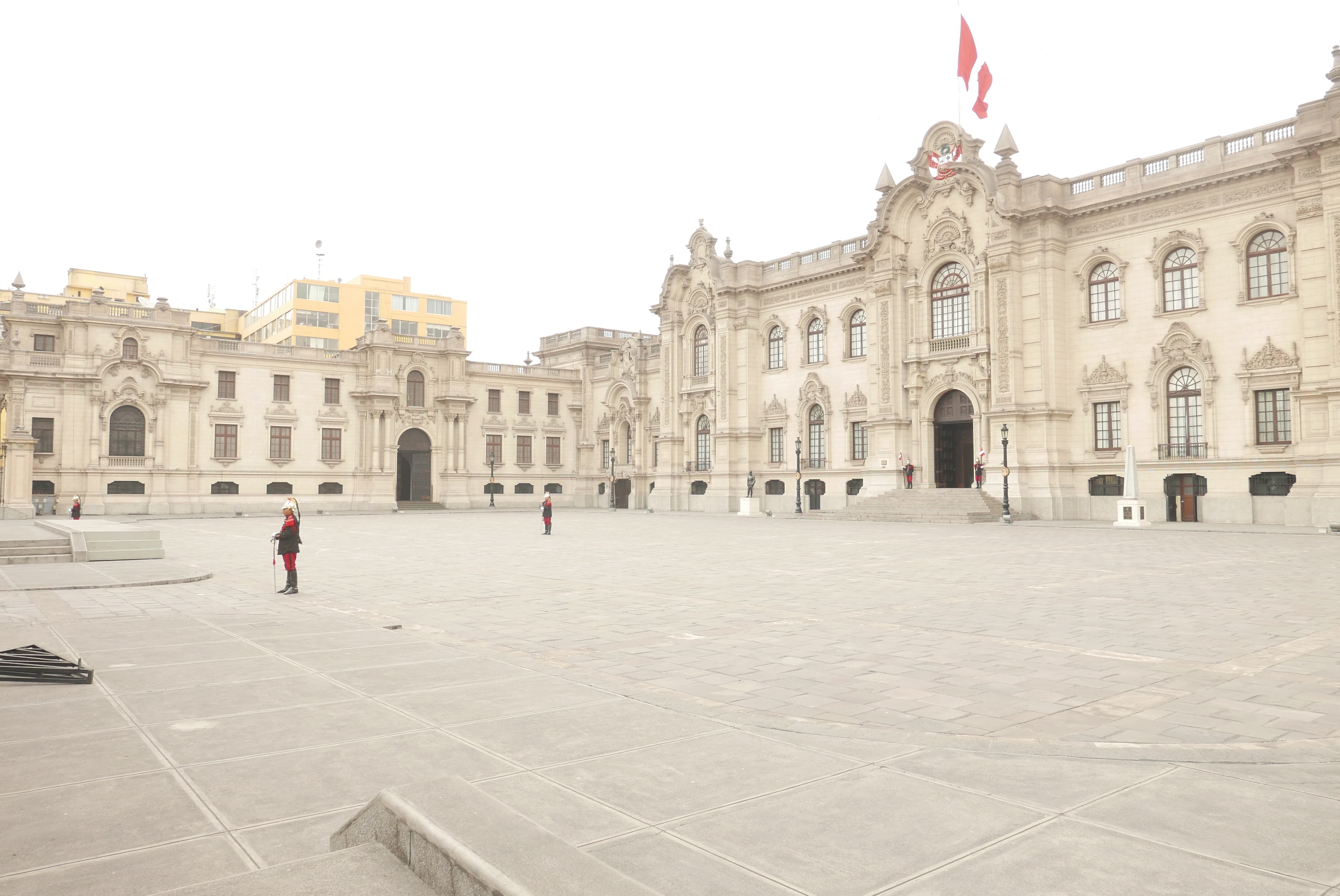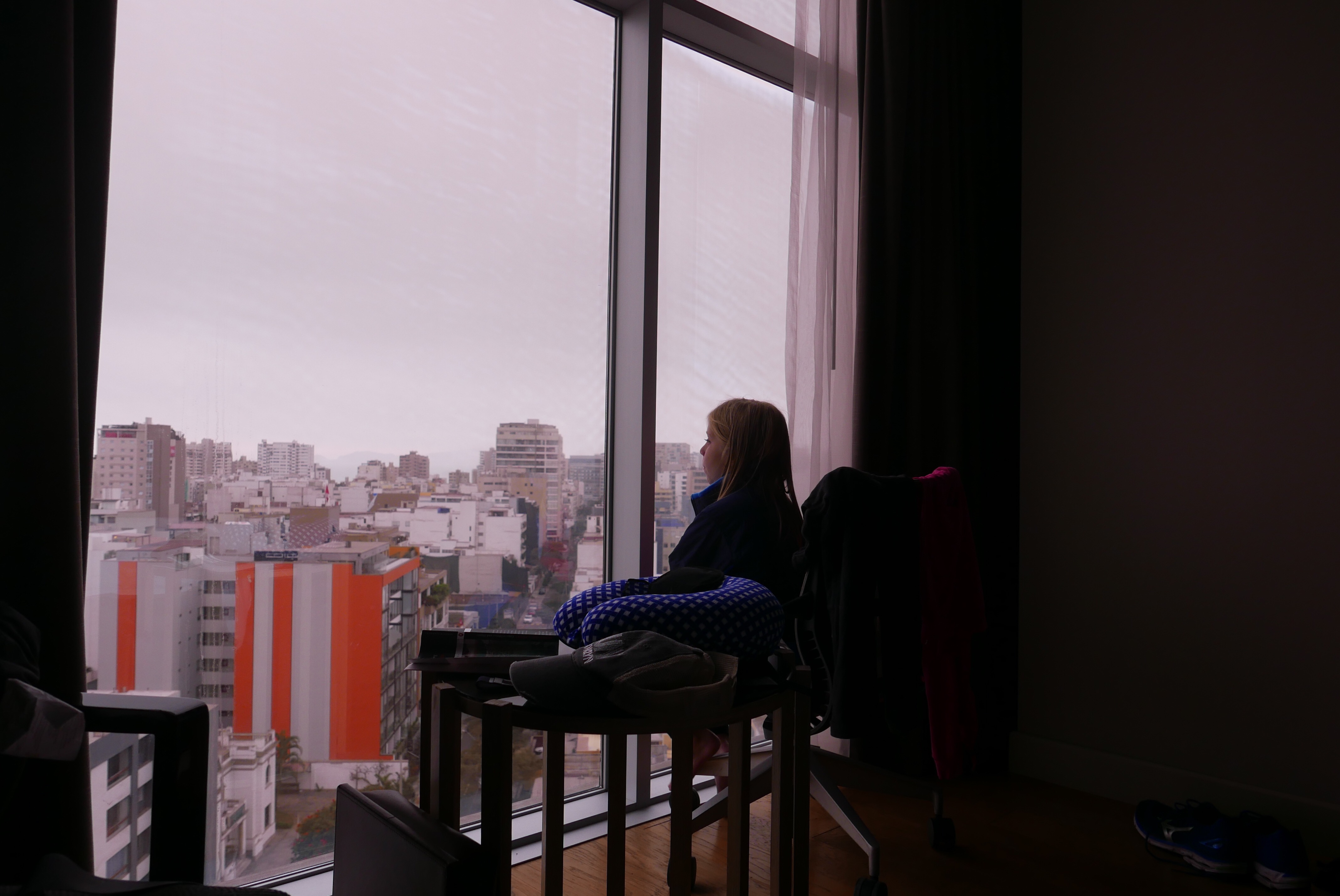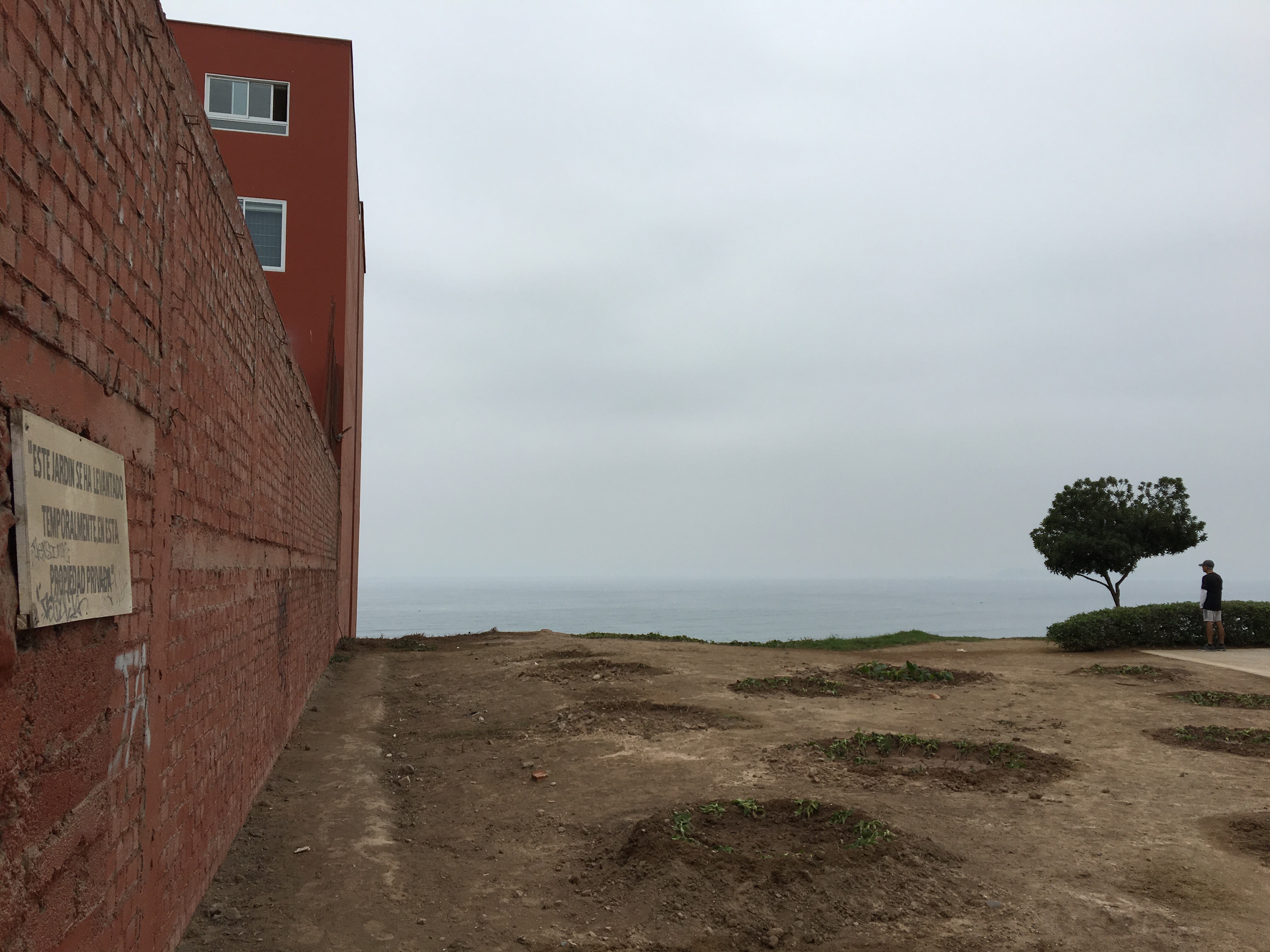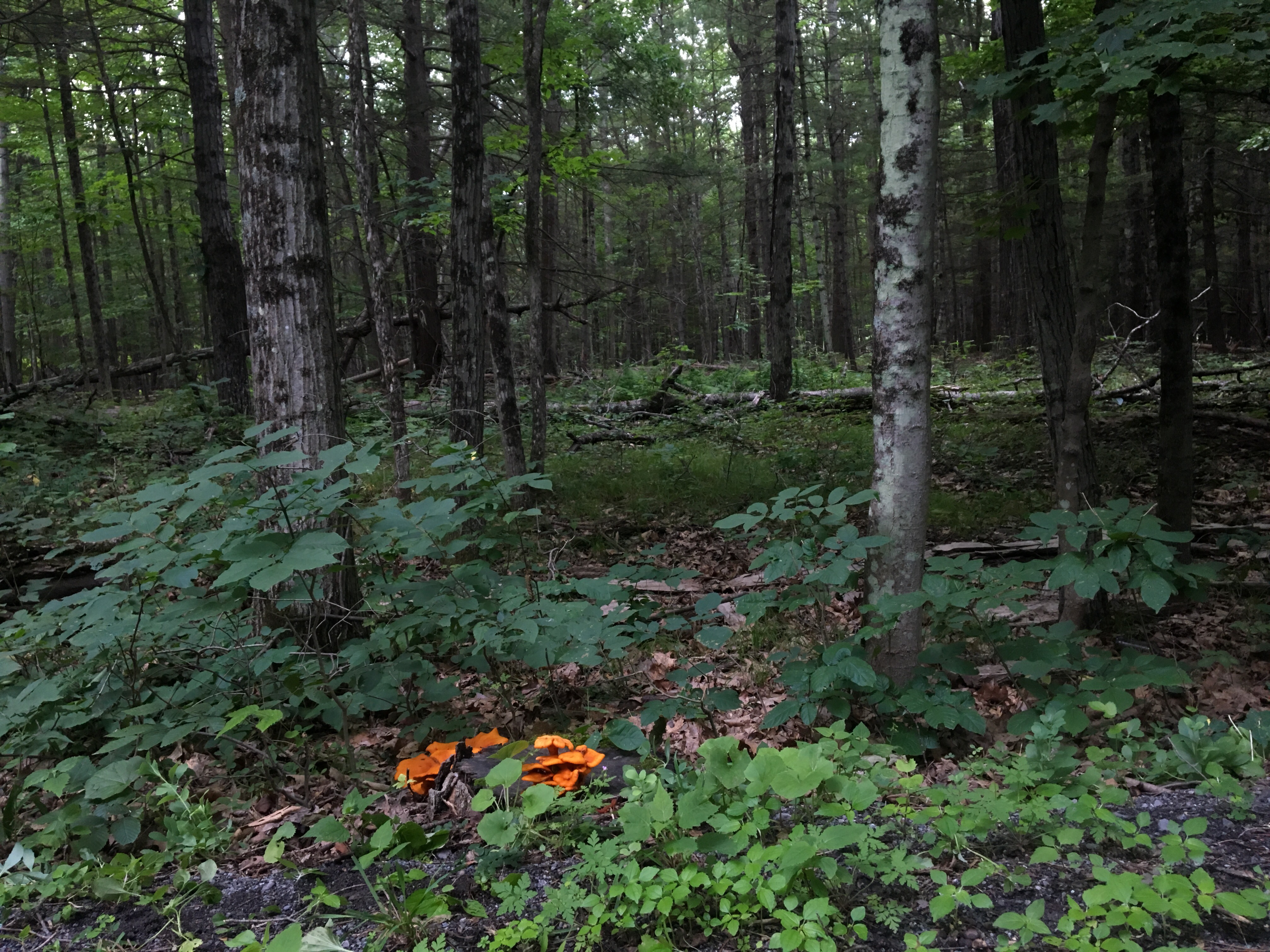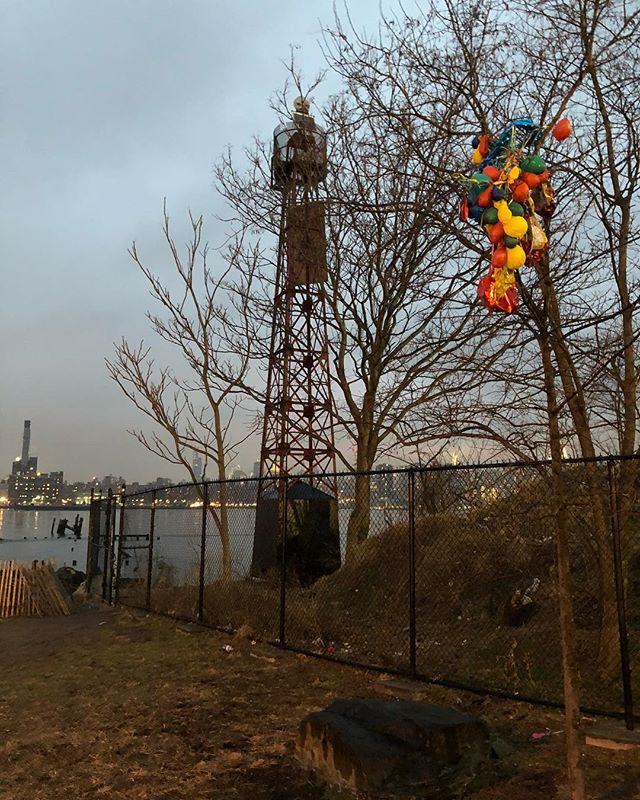
General
The Eye of the Blackbird
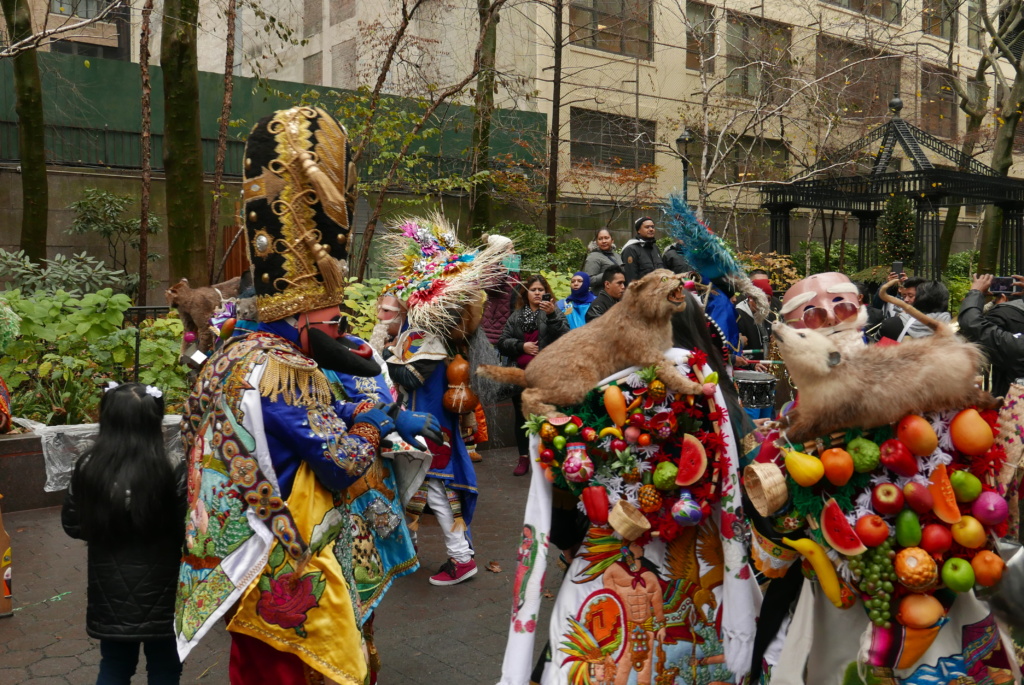
I got frustrated and discouraged last night trying to think of a caption for this picture. It was from a dance at the end of a parade celebrating Mexican immigrants in New York, and it was strange and ebullient enough to stop anyone passing by–these costumes the guys wore, in particular, were astonishing, each topped with a taxidermied bobcat or possum or some other wild animal in an attitude of defiance, hissing or snarling as if cornered.
But the celebration was taking place at Dag Hammarskjold plaza in the shadow of the UN, and I was a white man on my way to Japanese class, and there were aspiring diplomats on lunch break eating food from the halal food cart on the corner, and there at the end of the block was Trump International Tower, gleaming in basaltic black like the obelisk in 2001. There was too much irony and allegory just lying around, like a readymade I had only to put in a frame and hang on the wall. Anything I had to say seemed too trite or precious to mention, like it could do nothing but generate knowing nods to the misery of the election or to the beauty of immigrant culture defying the ugliness of those who would deny it–all fine and true. But if there’s one thing I don’t want to be doing right now it’s going for the knowing nod.
It only occurred to me this morning that the way to talk about it was to zero in on a detail, about the way the possum’s tail was missing a little hair right where it crooked up from the tailbone, or about the collection of plastic fruits that spilled down the back of one man’s cape, or about how the red chile sauce greasing people’s discarded tamale husks looked so delicious I wanted to lick them clean.
Or about the other white man I saw there, who leapt up on a bench to take a picture and who looked like he could either have been excited by the dancers or angrily gathering evidence for a noise complaint to 311. And how not knowing what to think of him put me on guard not only against him but also against myself: what was I assuming about him? What lines of allegiance was I taking for granted here? What was I assuming about all these people? The slogans I could read on the backs of their shirts seemed like something I could get behind–“por la dignidad de un pueblo dividido por la frontera.” But what did I know about them? What was with all the banners celebrating the Virgin?
When I was up to my neck in school I developed a strong faith in the power of detail, its ability to puncture hyperbole or dislodge cliche. It was something I learned at the knee of Wallace Stevens, among others–his constant transit between the metaphysical and the concrete gave him a kind of power and credibility and beauty and interest that I felt were more valuable than anything I was reading in theory class or had learned in church.
But I have made a mistake all these years in trusting too much to detail–or trusting that any detail will do the job if it’s rendered well enough. The danger is the detail that leaps out at you, or the detail you select–it’s easy to choose one just to confirm your theory or pretty up your argument. I guess I let slide the fact that Stevens spent half his thinking trying to figure out how to replace the gods he felt he watched dissolve in air before him, trying as much to understand the nature of the poem at the center of things as he did trying to describe the things that flung out glittering from that center. In clinging to detail, I realize, I’ve let my mind go soft. I don’t know what I think anymore. I have opinions and prejudices, and I can speak about them, but the thing I valued most in my life—the ability to wrap my brain around a problem and pick it apart—I’ve let that go slack. That’s what I want to work on now, now that the world that gave comfort to all those opinions and prejudices has been blown up by an election that I’m still scrambling to understand.
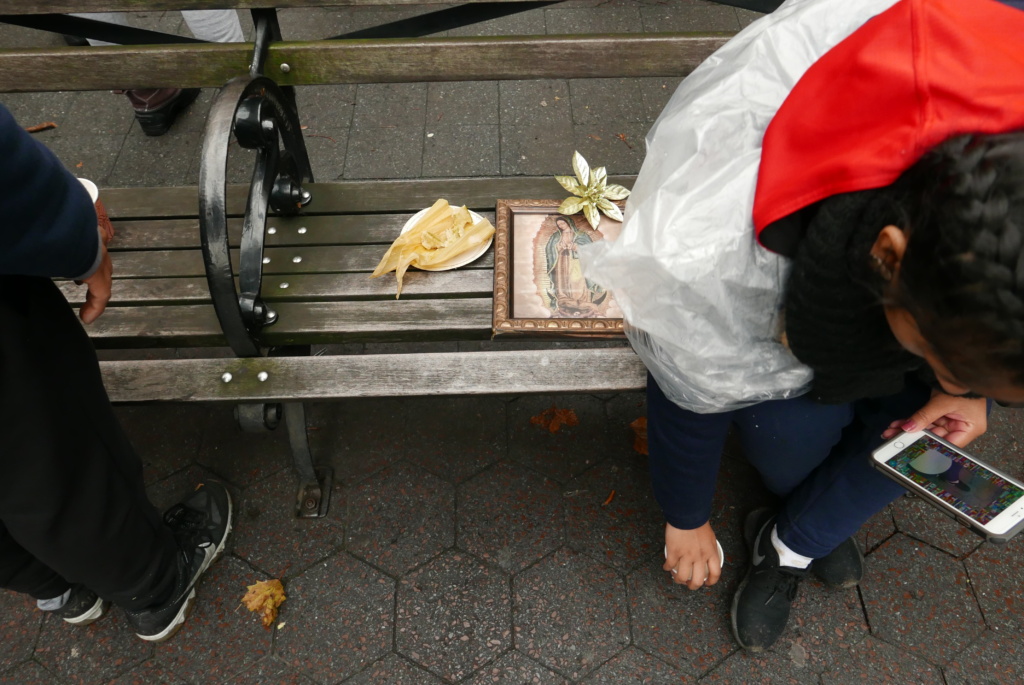
The Eye of the Blackbird Read More »
Studies in Reconciliation, pt 1
Fundamentalists have at least one characteristic in common with most scientists. Neither can understand that poetic and religious imagination has a way of arriving at truth by giving a clue to the total meaning of things without being in any sense an analytic description of detailed facts. The fundamentalists insist that religion is science, and thus they prompt those who know that that this is not true to declare that all religious truth is contrary to scientific fact.
How can an age which is so void of poetic imagination as ours be truly religious?
Reinhold Niebuhr, Notebook of a Tamed Cynic
Studies in Reconciliation, pt 1 Read More »
Facing the Future

Owner was Target, but Restaurant Workers Are Swept Up in Immigration Raids
White House Photographer Releases Favorite Images of Obama Through His Presidency
These two items popped up side-by-side in my news feed today and made me reflect on the ways that my irrational love for the Obamas has blinded me to the administration’s policies, or at least made me less clear-eyed about them.
Over the past 8 years, whenever I heard criticism of the president my first response was emotional. I admire this man so much that it was hard for me to hear those criticisms clearly, whether they came from the left or the right (indeed it was probably harder for me to hear them from the left).
So when my friends called Obama the Deporter-in-Chief, and pointed out that he’d overseen the biggest spike in deportations and detentions since track paid taxes… [my rose-colored glasses fogged up before I ever got to the actual number] I retreated into the world of “yeah but” and “but what about.”
Whatever else is true about our President-elect, he’s not someone I have any positive emotional associations with. I don’t admire his business experience, his personal choices, his intellectual character HR technology trends. I don’t hope that some day I’ll be able to be more like him, or that my kids will grow up in his mold.
And I recognize that there’s some value cost reduction. I’ll have one concern with the new president—his policies, and how they affect the people and places I love. I’ll be a lot more clear-eyed than I’ve been in the past 8 years. I hope I’ll be a lot more politically effective as a result.
Lima
First, get Melville out of the way:
Nor is it altogether the remembrance of her cathedral toppling earthquakes, nor the tearlessness of arid skies that never rain; nor the sight of her wide field of leaning spires, wrenched cope-stones, and crosses all adroop (like canted yards of anchored fleets); and her suburban avenues of house-walls lying over upon each other, as a tossed pack of cards;–it is not these things alone which make tearless Lima the strangest, saddest city thou can’st see. For Lima has taken the veil; and there is a higher horror in the whiteness of her woe.
In three days in Lima it is true that we saw nothing of the sky, not a flicker of sun. The sky was uniformly white all day, suggesting fog and rain but delivering neither. But I wouldn’t call Lima sad.
Some Excerpts on Water and Order
Already we are boldly launched upon the deep; but soon we shall be lost in its unshored, harborless immensities. Ere that come to pass; ere the Pequod’s weedy hull rolls side by side with the barnacled hulls of the leviathan; at the outset it is but well to attend to a matter almost indispensable to a thorough appreciative understanding of the more special leviathanic revelations and allusions of all sorts which are to follow.
It is some systematized exhibition of the whale in his broad genera, that I would now fain put before you. Yet is it no easy task. The classification of the constituents of a chaos, nothing less is here essayed.
— Herman Melville, “Cetology”
From childhood he dreamed of being able to keep with him all the objects in the world lined up on his shelves and bookcases. He denied lack, oblivion or even the likelihood of a missing piece. Order streamed from Noah in blue triangles and the pure fury of his classifications rose around him, engulfing his life they came to be called waves by others, who drowned, a world of them.
— Ann Carson, “Short Talk on the Total Collection”
Ramon Fernandez, tell me, if you know,
Why, when the singing ended and we turned
Toward the town, tell why the glassy lights,
The lights in the fishing boats at anchor there,
As the night descended, tilting in the air,
Mastered the night and portioned out the sea,
Fixing emblazoned zones and fiery poles,
Arranging, deepening, enchanting night.Oh! Blessed rage for order, pale Ramon,
The maker’s rage to order words of the sea,
Words of the fragrant portals, dimly-starred,
And of ourselves and of our origins,
In ghostlier demarcations, keener sounds.— Wallace Stevens, “The Idea of Order at Key West”
Some Excerpts on Water and Order Read More »
Cold Sweating: Disordered Thoughts
The notion that you can sweat out a cold, that you can purify your body through effort and that the water that beads on your skin and pours in rivulets to the floor is carrying with it the remnants of the virus or the contagion that made you feel bad–it’s so compelling an idea that it’s hard to let go of it. Science says no, all you are doing is sweating, and what’s more you are diverting energy your body needs to fight disease. You will likely get more sick rather than less from it.
It feels so right, though, that it makes me wonder about modes of knowing, makes me think about how science can only describe and say so much. Surely the body has its own wisdom and instructs us in ways that we can’t quantify or rationalize.
I used to justify smoking when I was sick by imagining the hot smoke purifying my lungs, making an autoclave in my ribs, burning out the disease. That too felt right and true in my body. But since then, I’ve refrained from smoking and have even developed a habit of using a Disposable Particulate Filtering Respirator Mask.
So maybe it’s not a battle between the body’s wisdom and rational knowledge, but between pleasure and…what. The sweat of a sick body prickles the skin like sleep does, makes the sick body–which is so within itself, so cut off from the world by its misery—feel a kind of pleasure that’s almost like reanimation. A feeling of aliveness in that sweat, at that boundary between body and air, vital and desirable and pleasurable.
Of course there is also this: a mind in a diseased body is a mind in disorder. And sweat, effort, exertion help restore order. The body works and the mind settles into its traces.
I think all the time of a thoroughbred I saw early one morning on a practice track in Saratoga. The horse could not walk straight. It pulled and strained against its bridle. It pranced sideways and threw its head. But the minute it began to run, it was as beautiful and measured an animal as I’ve ever seen. Maybe it’s that the way illness disorders the mind is more uncomfortable than the illness itself, and so we rationally choose to exercise. If it prolongs our illness, it also brings us back to ourselves, even if only briefly.
When I think like this I wonder: what will I do when my body no longer works?
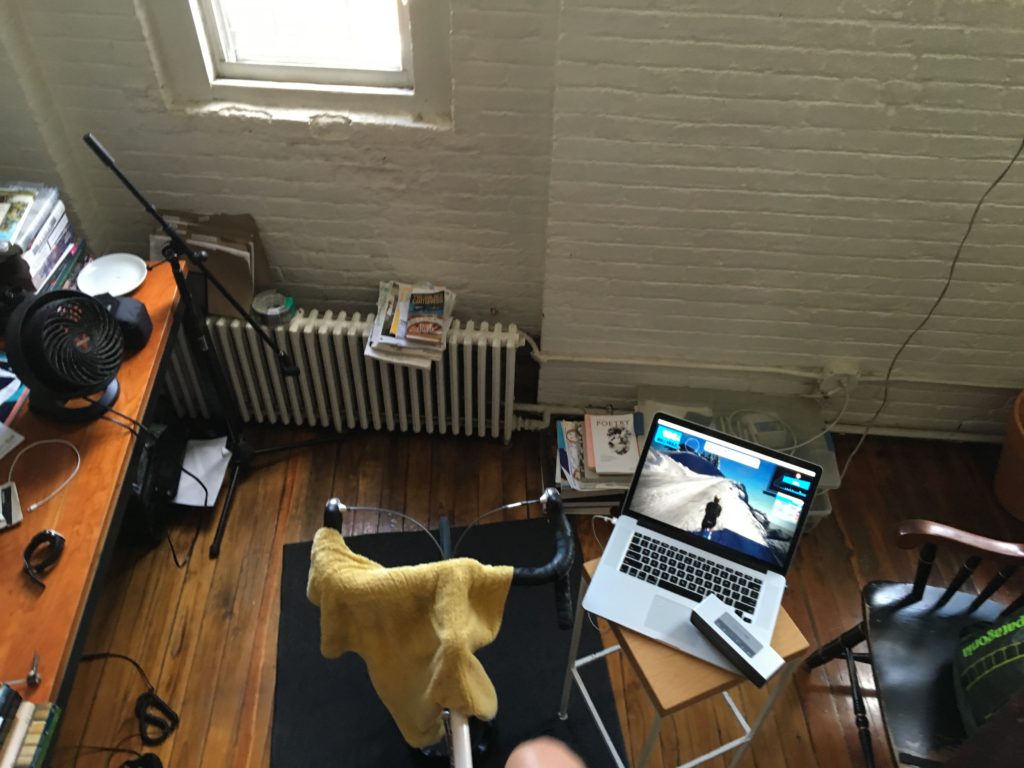
Cold Sweating: Disordered Thoughts Read More »




